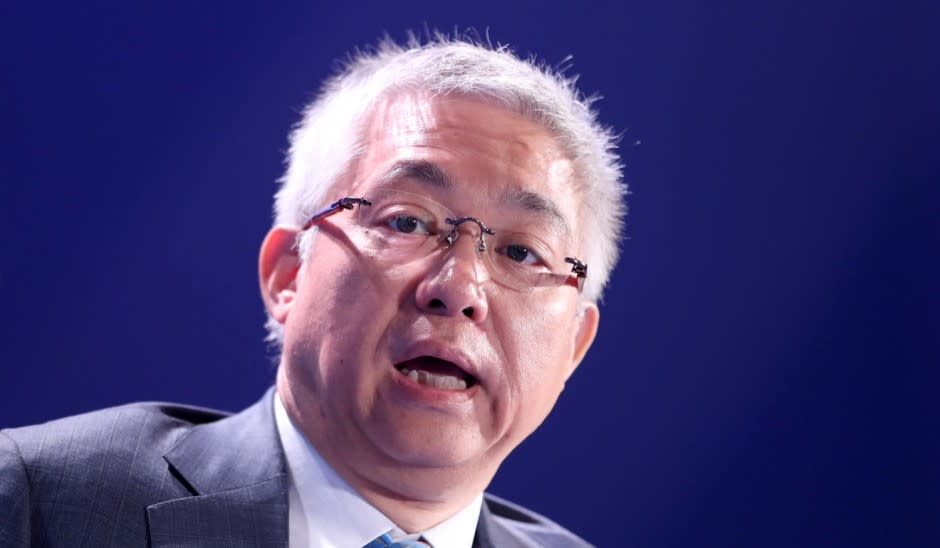Citic Capital, McDonald's majority owner in China, says online food delivery services is burger chain's biggest revenue driver

More than one-fifth of McDonald's overall revenue on the mainland now comes from delivery services thanks to the growing popularity of these food apps and the country's well entrenched mobile payment culture.
Same store sales alone have grown 4 per cent year to date from the same period last year, according to Yichen Zhang, chairman and chief executive of investment firm Citic Capital, which owns a 52 per cent stake in the burger chain's China and Hong Kong businesses.
McDonald's sold an 80 per cent stake in the business to Citic Capital, Citic Ltd and US private equity firm Carlyle for US$2.08 billion in January 2017. Carlyle owns a 28 per cent stake, while the Chicago-headquartered fast-food giant retained a 20 per cent stake. Since then the new investors have increased the number of stores on the mainland to 3,000 from 2,400.
"The growth we have been generating today compared to two years ago is mostly through technology," said Zhang at the SuperReturn Asia conference in Hong Kong on Tuesday.
Red Lobster seafood chain slowly clawing its way into China, but hopes country will one day be its biggest market
In China, delivery apps operated by Tencent Holdings-backed Meituan Dianping, and Alibaba-owned Ele.me have fanned the popularity of online food delivery services.
According to forecasts from Frost and Sullivan, China's food and drinks market is expected to reach US$927 billion a year in 2023 from US$628 billion last year on the back of the popularity of the delivery services and demand from millennials " people born in the 1990s.

Zhang Yichen, chairman and chief executive officer of Citic Capital, says it's hard to see China losing the tech war with the US. Photo: Bloomberg alt=Zhang Yichen, chairman and chief executive officer of Citic Capital, says it's hard to see China losing the tech war with the US. Photo: Bloomberg
"We have successfully convinced our US headquarters to [approve] our partnership with Tencent ... that makes marketing more low cost and effective, and [that] changes the whole game," said Zhang
He however did not provide details on the latest partnership with Tencent.
Currently, McDonald's sends digital coupons to its nearly 100 million registered members in China using its app, allowing them to redeem discounted food items by scanning a QR code on their WeChat app, or view new menu items' launch. Tencent's WeChat is a multipurpose social media and messaging app in China.
Zhang also weighed on the ongoing US-China technology rivalry and investment opportunities arising from the feud.
Popular Chinese hotpot chain sets its sights on US, to open first outlet in New York early next year
He said that database software and enterprise services in China will see a wave of investment because of the US government's clamp down on access to US technology by Chinese giants, such as Huawei.
"If licensing to sell technology to Huawei can be curbed by the US government anytime, do you still want to build your business at the mercy of someone else?" he asked, referring to an emerging trend among Chinese companies who are relying more on locally developed software.
"With the economies of China and the US decoupling on the tech front, you just see that some Chinese companies would come up [with their own solutions], as they have a market for their [products]. It's hard to see China lose in the long run."
Last month, Citic Capital closed a US$2.8 billion China buyout fund, its largest to date. The investment firm currently manages US$7.4 billion worth of committed capital, while its private equity arm focuses on health care, services and industrial sectors.
This article originally appeared in the South China Morning Post (SCMP), the most authoritative voice reporting on China and Asia for more than a century. For more SCMP stories, please explore the SCMP app or visit the SCMP's Facebook and Twitter pages. Copyright © 2019 South China Morning Post Publishers Ltd. All rights reserved.
Copyright (c) 2019. South China Morning Post Publishers Ltd. All rights reserved.

